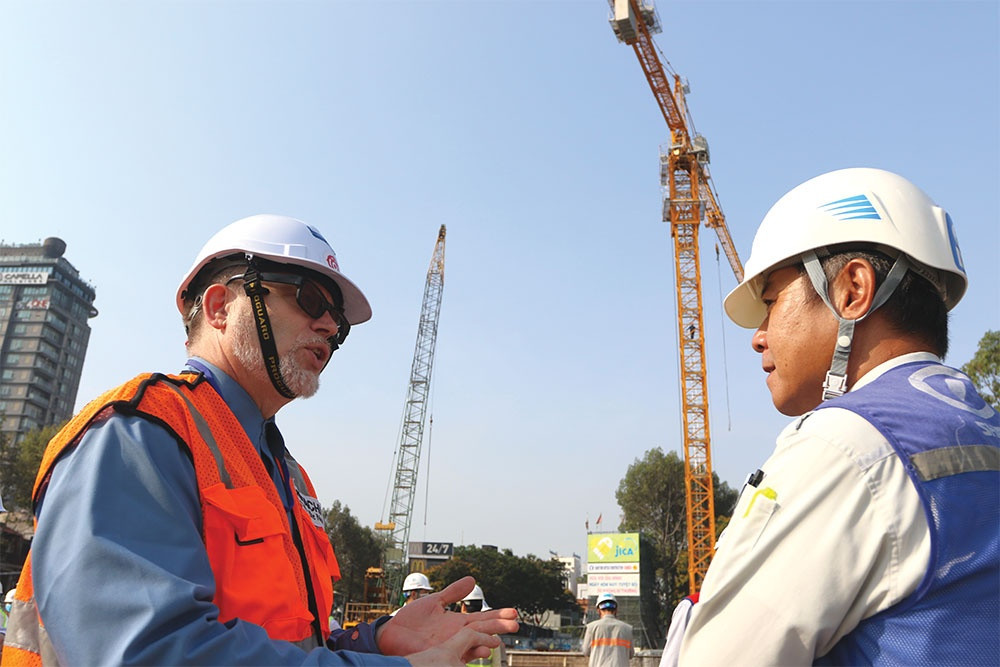 |
Deputy Prime Minister Tran Hong Ha has asked the Ministry of Labour, Invalids, and Social Affairs (MoLISA) to promptly review and simplify procedures for granting work permits to non-nationals, in order to create conditions for businesses to grow.
“Amending legal regulations requires thorough review, in-depth research, comprehensive evaluation and caution, and especially obtaining feedback from stakeholders, notably diplomatic representation agencies, international organisations, and more,” said DPM Ha at a meeting on August 23 on the issue.
He asked to focus on resolving problems in granting work permits online and taking measures to ensure transparency and convenience for applicants, while adopting government policy on attracting, managing, and using foreign workers in Vietnam effectively.
The draft decree, submitted to the prime minister before August 25, offers several simple regulations for specific groups of foreigners in the country. It proposes that an expert only needs relevant experience and a university degree to be granted a work permit, and is not required a university degree related to their role in Vietnam.
For technical workers, they only need to have appropriate experience and be trained for at least one year to be granted a work permit in the country.
The draft also said that experts and technical workers can use their already-issued work permits to demonstrate experience.
The ideas, if confirmed, would ease pressure on many businesses and organisations that complained in recent years of procedures that were too strict and too confusing.
Representatives of chambers of commerce in Vietnam, including the US, European, and South Korean chambers, have consistently raised concerns at forums over the issue since Decree No.152/2020/ND-CP took effect, regarding foreign employees working in Vietnam. As per the decree, which was enacted in early 2021, permits are now typically issued for two years instead of three; a brand new work permit would have to be applied for if a foreign worker was transferred or promoted in the same company; and most workers would have to provide written and certified evidence of 3-5 years experience outside the country in exactly the same job role they seek to take up in Vietnam.
This led to many workers who gained the bulk of their experience in Vietnam to have no way of completing the procedures.
The chamber representatives were united in agreeing that it is unreasonable for foreigners who have lived, worked, and invested in Vietnam for years to be denied a new work permit or extension because of a small administrative issue.
The length of time to complete the process has also been an issue. Hong Sun, chairman of the Korea Chamber of Business in Vietnam, told the Vietnam Business Forum in March that many South Korean businesses find that it usually takes 2-3 months to acquire work permits for their foreign staff, or even up to six months.
Decree 152 requires foreign workers or their representatives to apply for a work permit at least 15 days before they expect to start working.
The European Chamber of Commerce also complained that the online portal to apply for work permits is not reliable, and documents uploaded tend to go missing. Processing documents takes too long because of stringent requirements from officers, which entail making many adjustments to applications.
To make foreign investors feel secure, Minister of Labour, Invalids and Social Affairs Dao Ngoc Dung said that the government is also working on simplifying the labour code, and that foreign experts and managers will be among the top priorities in drawing up new regulations governing work permit issuance.
Source: VIR